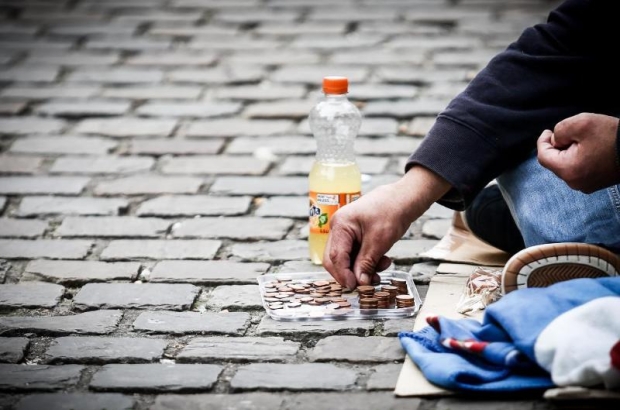- Daily & Weekly newsletters
- Buy & download The Bulletin
- Comment on our articles
Regulating begging: Brussels aims to tackle panhandling in the city
The city of Brussels is considering a measure that would regulate begging, similar to one already is use in Liège, Charleroi, Namur, Tournai and Etterbeek.
MR councillors David Weytsman and Céline Vivier are drawing inspiration from these places in formulating their own proposal, La Capitale reports.
“For almost two years, we have been working on the economic and social urgency for the city centre of Brussels,” said Weytsman.
“We have already tabled a motion on the economic recovery plan, another on the quality of life and public cleanliness and another on street harassment. This motion on begging is a logical continuation of our efforts to improve the living environment in the centre of Brussels.”
Weytsman explained that the motion is mainly aimed at aggressive begging, begging in organised networks and child begging.
In Belgium, begging has not been classified as an offence since 1993. “Nevertheless, the exploitation or trafficking of human beings in the context of begging is specifically punishable by the penal code,” both Weytsman and Vivier emphasised.
“Based on this, we are already asking to intensify controls to fight against networks as well as to ban child begging.”
Using regulations from other major Belgian cities as an example
The two point out that most of the bigger cities in Wallonia (Liège, Charleroi, Namur, Tournai) and Flanders (Ghent, Antwerp, Mechelen) have already made communal adjustments to regulate begging via police regulations.
“This is the case in all major cities except Brussels,” said Weytsman.
Regulation of begging in Brussels, following the examples of those cities, would limit the number of beggars in the shopping districts and establish a defined number of beggars permitted to panhandle on the same street.
Weytsman and Vivier would also like to follow the example of Namur and ban the presence of beggars on the terraces of catering establishments, near schools, ATMs, banks or during weekly markets.
They’d also like to prohibit any person engaged in begging from obstructing the entrance to a building, being accompanied by an aggressive animal, being threatening, obstructing the progress of passers-by or carrying out the activity on streets or cycle paths.
There is also the possibility of banning begging on certain tourist routes in the city centre and the possibility of introducing a rotation of begging by district, “but on this last point, aid associations fear losing contact with the beggars they are trying to help.”
The motion from Weytsman and Vivier includes a social objective to assist beggars “by referring them to the appropriate services to help them”.
Proponents say police enforcement of regulations also provides a basis for establishing regular communication between beggars and law enforcement, which can help to reduce crime and connect beggars to those relevant social services.
Photo: © Belga/ Siska Gremmelprez



















